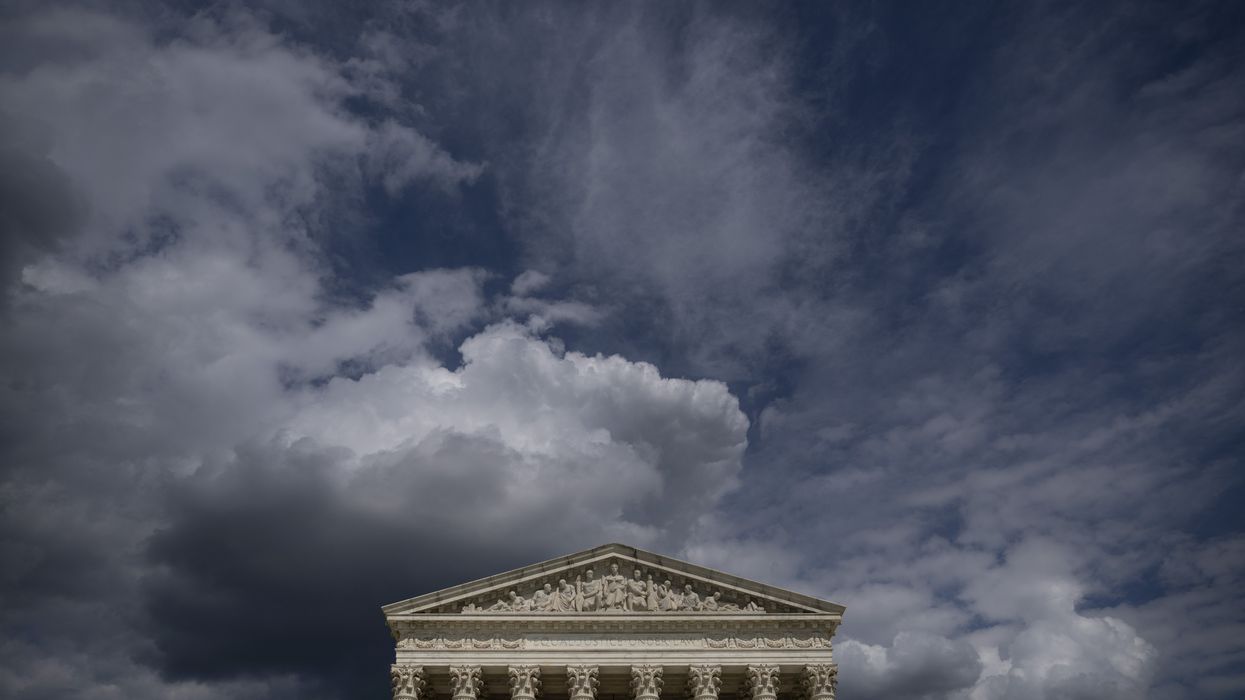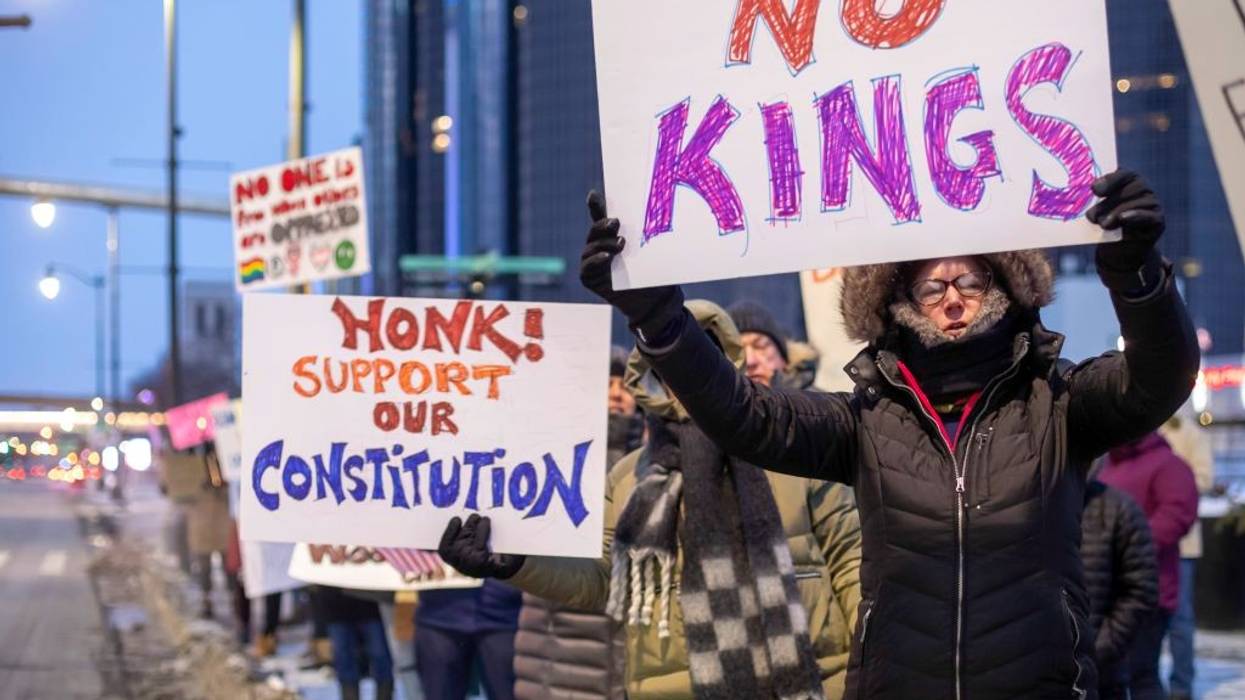How the Right-Wing Supreme Court Uses the Shadow Docket to Boost Trump’s Agenda
Although the Supreme Court has a long history of entertaining emergency appeals, emergency requests in high-profile cases proliferated during Trump’s first term and continue in his second.
In an unsigned two-page decision (Trump v. Wilcox) released on May 22, the U.S. Supreme Court upheld the Trump administration’s move to fire members of the National Labor Relations Board and the Merit Systems Protection Board without cause and in the middle of their designated terms. The decision reversed two separate judgments issued by two different D.C. District Court judges that had blocked the firings as unconstitutional.
The Supreme Court’s ruling was issued on an expedited basis as part of a rapidly expanding and highly controversial set of truncated decisions known as the “shadow docket,” a term coined by University of Chicago professor William Baude in a 2015 law review article to describe emergency appeals that come before the court outside of its standard “merits” docket and that are typically resolved without complete briefing, oral arguments, or detailed opinions. Although shadow-docket rulings are frequently used to lift, or “stay,” lower-court injunctions while further litigation continues, they often have the same practical effect as final decisions.
The two officials involved in the Wilcox case, Gwynne Wilcox of the NLRB and Cathy Harris of the MSPB, were nominated to their positions by President Joe Biden and were confirmed by the Senate. Before their dismissals, they were set to serve fixed terms, with Wilcox’s tenure expiring in 2028 and Harris’ in 2029.
Kagan is not alone in her critique that the shadow docket undermines precedent and lacks transparency.
The NLRB’s five-member governing board is charged with enforcing U.S. labor law and collective bargaining, and adjudicating alleged unfair labor practices. The MSPB has a three-member board and adjudicates federal employee challenges to adverse employment actions. Both agencies were established by Congress to operate as independent, nonpartisan overseers free from presidential interference.
President Donald Trump has long railed against agency independence. In a 2019 speech at Turning Point USA’s Teen Action Summit, he declared, “I have an Article 2, where I have the right to do whatever I want as president,” referring to the second article of the Constitution and the “unitary executive” theory, which contends that all executive power is concentrated in the president. Trump is also a proponent of the goal of “deconstructing the administrative state,” a phrase popularized by Steve Bannon and more recently promoted by Project 2025.
Sensing an opportunity to strike, Trump fired Wilcox, a career labor attorney, on January 27, a week after his second inauguration. Harris was sent packing a month later. The lower-court orders mandating their reinstatements were issued in March. But on April 9, Trump’s solicitor general and former criminal defense attorney D. John Sauer requested the Supreme Court to intervene and put the district-court judgments on hold, allowing the dismissals to take effect while returning the cases to the district courts and the Court of Appeals for additional hearings, a process that could easily take more than a year.
In his petition to the Supreme Court, Sauer implored the justices to disregard the court’s 1935 precedent decision in Humphrey’s Executor v. United States, which held that Congress has the constitutional power to enact laws limiting the president’s authority to fire executive officers of independent agencies that exercise quasi-legislative or quasi-judicial functions. Sauer asked the justices to put the lower-court reinstatement orders on hold or, alternatively, issue a final decision on the merits, endorsing the administration’s actions.
Although the firings of Wilcox and Harris clearly ran afoul of Humphrey’s, the Supreme Court granted a stay, and both women were sacked. Just as shocking, the court did so without hearing oral arguments, and without citing Humphrey’s a single time in its decision.
The three Democratic-appointees on the court dissented. Writing for herself and justices Sonia Sotomayor and Ketanji Brown Jackson, Justice Elena Kagan blasted her Republican colleagues for their bad faith and bias in favor of the president. “For 90 years,” she charged, “Humphrey’s Executor v. United States… has stood as a precedent of this Court. And not just any precedent. Humphrey’s undergirds a significant feature of American governance: bipartisan administrative bodies carrying out expertise-based functions with a measure of independence from presidential control.”
Quoting Alexander Hamilton, she continued, “To avoid an arbitrary discretion in the courts, it is indispensable that they should be bound down by strict rules and precedents.” Without mentioning the shadow docket by name, she castigated the majority for rushing to judgment, “unrestrained by the rules of briefing and argument—and the passage of time—needed to discipline our decision-making.”
Although the Supreme Court has a long history of entertaining emergency appeals—such as last-minute requests for stays of execution in death penalty cases—emergency requests in high-profile cases proliferated during Trump’s first term, earning the shadow-docket sobriquet. According to Georgetown University law professor and shadow-docket scholar Steve Vladeck, the first Trump administration sought emergency relief 41 times, with the Supreme Court granting relief in 28 of those cases. By comparison, the George W. Bush and Barack Obama administrations filed a combined total of eight emergency relief requests over a 16-year period.
In December 2017, the Supreme Court issued a shadow-docket ruling allowing the third and final version of Trump’s racist Muslim travel ban to move forward pending further appeals. The court ultimately approved the ban in a 2018 merits decision. Later in Trump’s first go-round, the court used the shadow docket to uphold Trump’s executive actions calling for the diversion of federal funds to construct the southern border wall, prohibiting transgender people from openly serving in the military, and restricting the ability of Central American refugees to seek political asylum.
During Biden’s presidency, the shadow docket shifted to emergency requests filed by red state governments and private parties, but the court maintained its rightward bias. Among other shadow-docket decisions, the court ended Biden’s Covid-19 eviction moratorium; permitted the new six-week Texas abortion ban to take effect (it would later approve the ban in a final decision that overturned Roe v. Wade); and reinstated a first-Trump-term policy that made it easier for companies to pursue projects that pollute U.S. waters.
Kagan is not alone in her critique that the shadow docket undermines precedent and lacks transparency. At times the criticism has become heated. In September 2021, Atlantic staff writer Adam Serwer triggered an open feud with Justice Samuel Alito, penning a column that accused the court’s right-wing majority of publishing its ruling on Texas’ abortion law in the middle of the night to minimize public outcry. In response, Alito excoriated the media during an hour-long live-streamed speech delivered at Notre Dame University for portraying the court’s majority as “a dangerous cabal that resorts to sneaky and improper methods to get its ways,” and for feeding “unprecedented efforts to intimidate the court or damage it as an independent institution.”
Fortunately, not every shadow-docket order has leaned in the direction of Trump and the MAGA movement. One notable exception was the court’s May 16 ruling that extended an earlier ban on the deportation of undocumented Venezuelan men in immigration custody in Texas under the Alien Enemies Act of 1798. But even that decision ended with a note of encouragement for Trump, advising that “The Government may remove the [men]… under other lawful authorities.” There was also an impassioned 14-page dissent written by Alito and joined by Justice Clarence Thomas.
On May 30, the court issued another pro-Trump shadow-docket order, allowing the Trump administration to revoke the temporary legal status of more than 500,000 immigrants from Cuba, Haiti, Nicaragua, and Venezuela that had been granted by the Biden administration. And in the coming weeks and months, the court can be expected to return to the shadow docket again in cases involving the deportation of undocumented migrants to South Sudan, the operations of the Department of Government Efficiency (DOGE), and possibly the legality of Trump’s tariffs.
Given the court’s overall jurisprudence, there is scant reason to be optimistic that it will openly repudiate or substantially limit the president’s authority in these or other cases critical to the nation’s future. As Elizabeth Wydra, president of the liberal Constitutional Accountability Center, told Reuters in a 2021 interview, “What we are seeing are the consequences of a deeply conservative court, with the added travesties of the shadow docket.”



